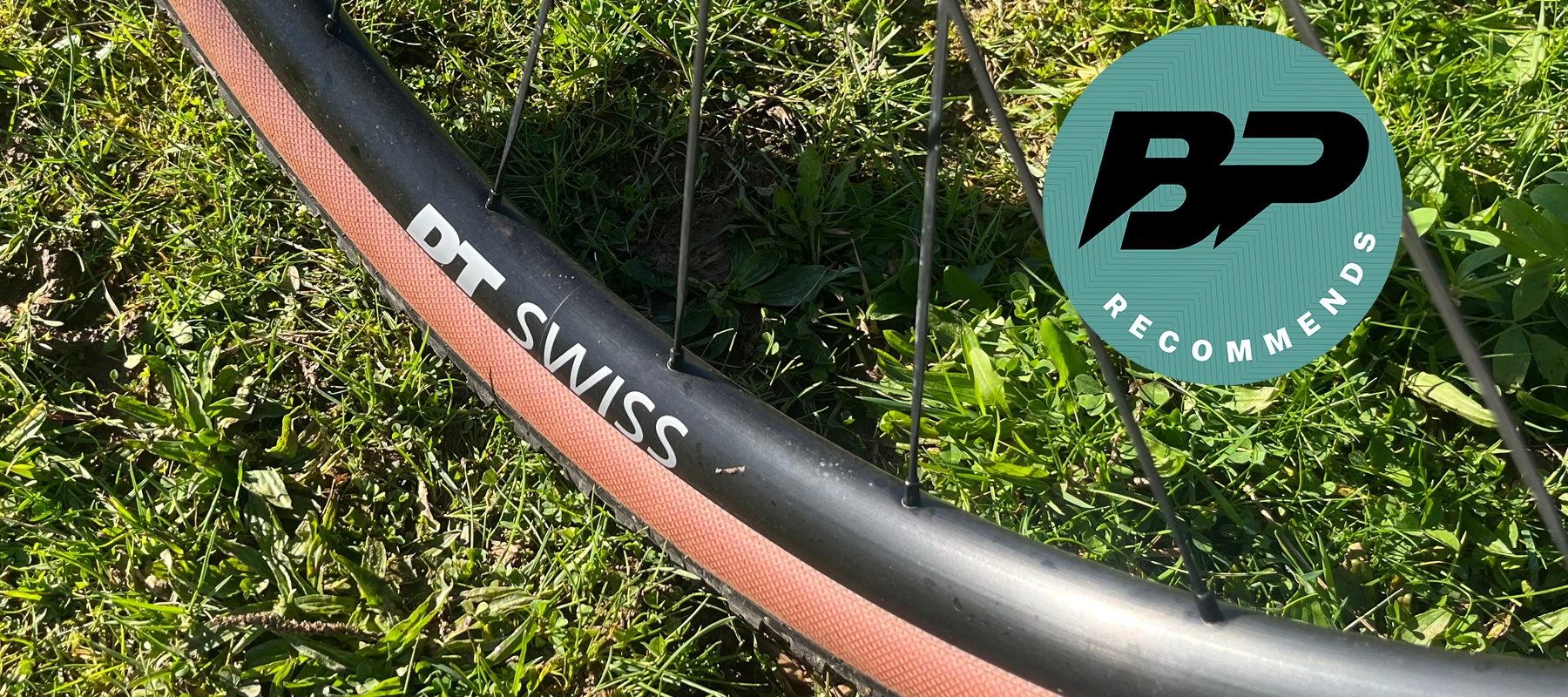Bike Perfect Verdict
A solid, reliable, if a little heavy, wheelset for long haul milage. Not the quickest engaging hub, but established reliable ratchet technology at this price point is a definite plus
Pros
- +
Solid and reassuring ratchet connection
- +
Easy to service internals
- +
Top-class durability heritage
- +
Hand-built quality
- +
Comfortable trail-taming ride
Cons
- -
Freehub engagement is on the slow side
- -
Heavy
- -
No aero
Why trust BikePerfect
DT Swiss is one of the biggest wheel manufacturers out there, and unusually, it makes all of the parts in-house. Where most brands will make the rims or hubs and use spokes from a separate supplier, DT produces everything in-house to a stereotypically high Swiss standard. This gives complete control over the manufacturing process, which has given DT Swiss a reputation for solid, reliable components such as the DT Swiss 1900, which we gave full marks in testing. So, how did the updated G1800 compare to the best gravel wheels out there?
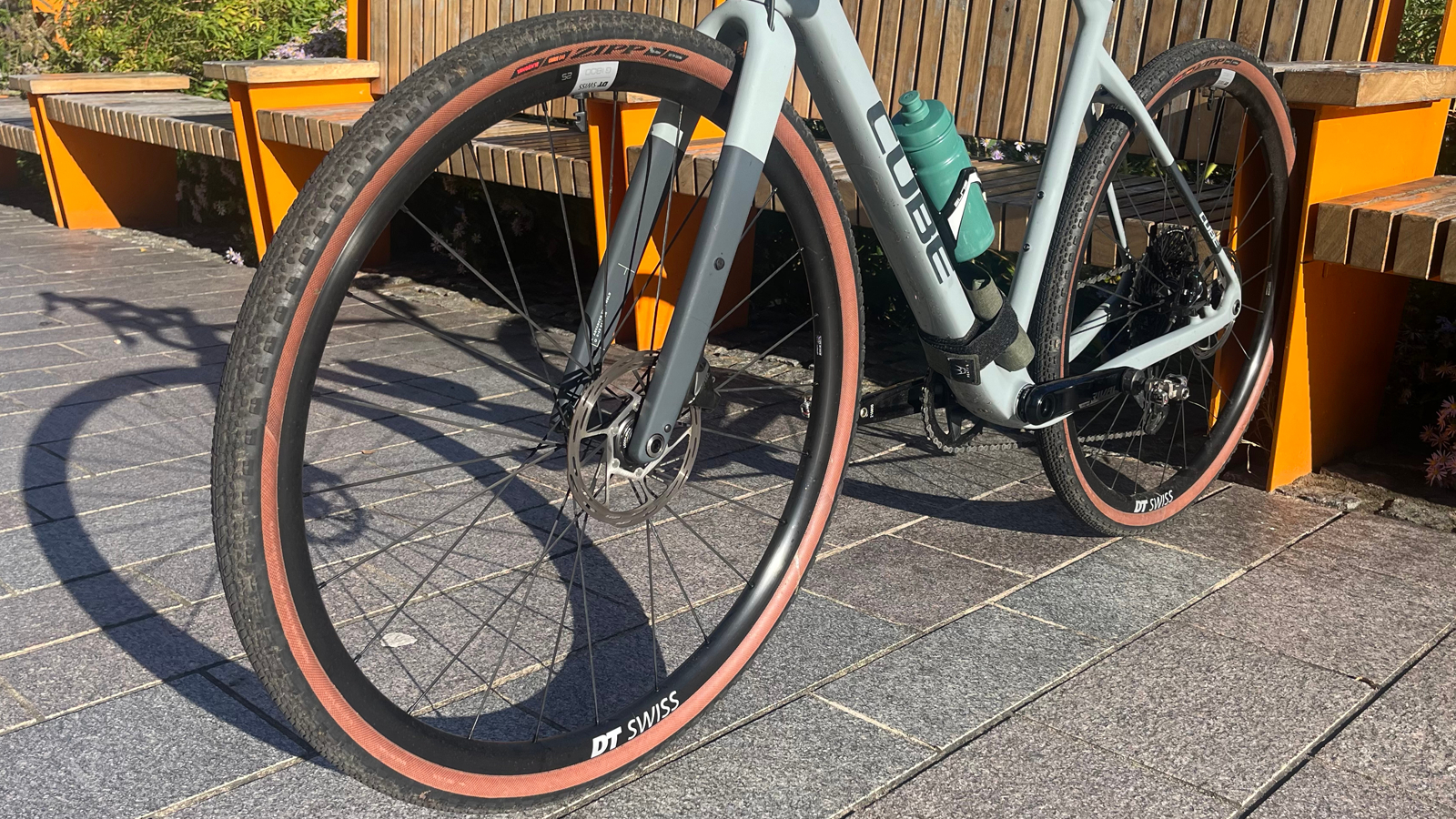
Design and specifications
The G1800 is the base model in the recently updated DT Swiss alloy wheel range, which DT Swiss says is perfect for gravel and adventure bikes. I Had the 700C version on test, but it is also available in a 650B version, which is ideal if your trails are on the chunky side and you plan to run bigger volume tires with a bit more cushion.
My pair came in at 1832g, including tubeless valves, which is heavy for gravel wheels, but they do have a higher-than-normal system weight limit of 130 kg instead of the usual 100kg most wheels are rated to. System weight might not be something you've heard mentioned before, but it's basically the complete weight of the bike and rider and is often used when discussing e-bikes or cargo bikes. It is particularly relevant here, given DT says these are perfect for bikepacking adventures. It is surprisingly easy to get near or over the suggested weight limit of some products if you are a bigger rider on a fully loaded bike, so knowing they are tested to take the strain is reassuring.
The 25mm deep hooked rim has an internal width of 24mm and measures 28mm externally, suitable for tires from 35mm up to 53mm wide. I had some Zipp Course G40 tires fitted for most testing, which measure up to 44mm, fitted to these rims. I also fitted a Schwalbe G one Ultrabite in a 50mm, which went on perfectly but was a little tight regarding clearance on the Ribble Gravel Ti Pro I had on test. It uses a sleeved design, a more cost-effective and slightly heavier manufacturing method than the laser welding used on higher-end DT alloy wheels. A sleeved design can sometimes be prone to tubeless leaks where there is a tiny gap where the rim is joined, but the finish on my set was perfect with no such problems.
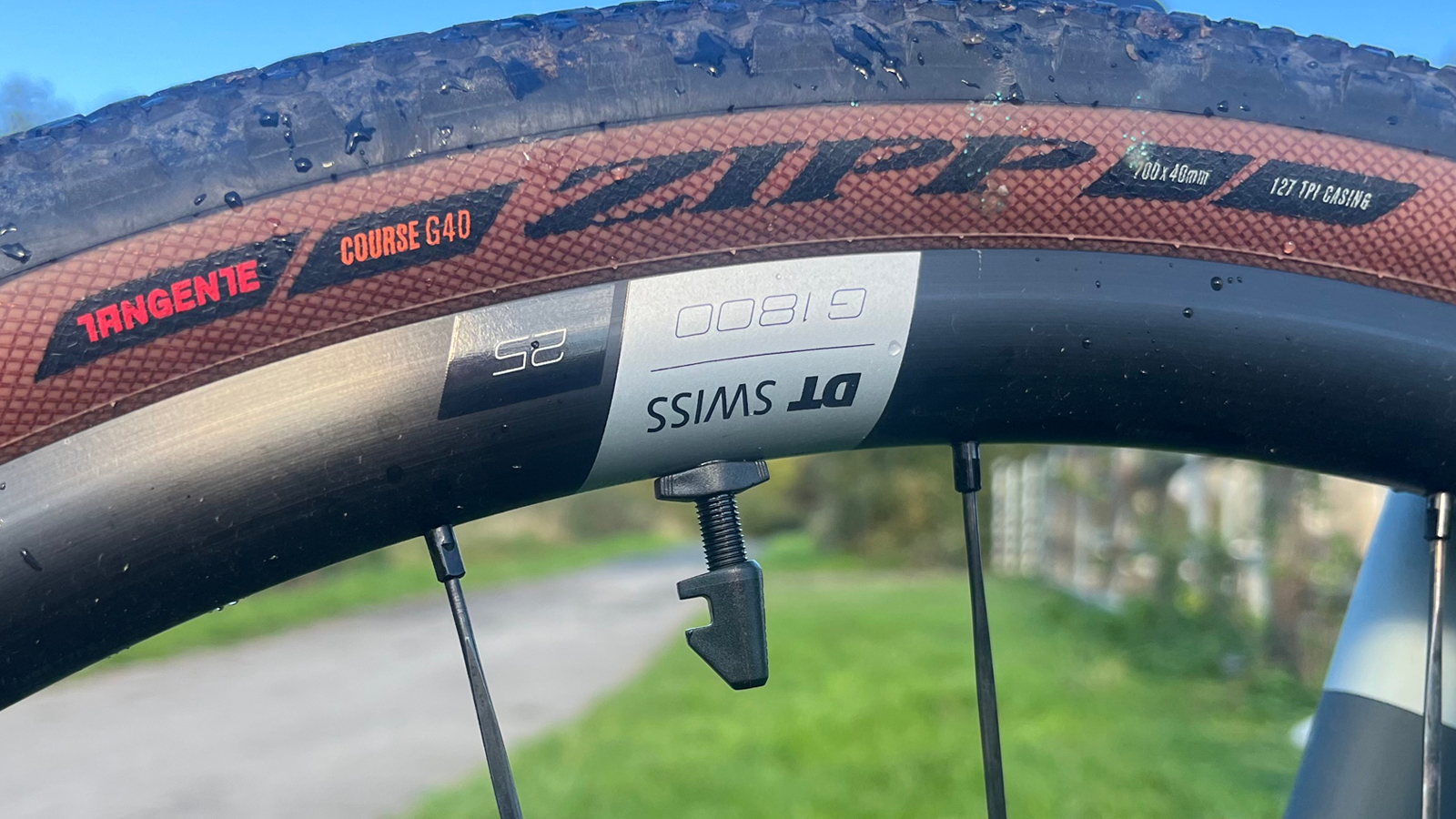
The big update on the latest G1800 is with the rear hub, which now uses a Ratchet system instead of the three-pawl version found on older versions. The Ratchet LN is a variant of the tried and tested system used by DT for decades, which uses two opposing spring-loaded drive plates, which gives a more positive and reliable engagement than a pawl system and, with its tool-free design, is super easy to service for years of trouble-free riding. The G1800 is specced with a low 18-tooth ratchet, which gives you a 20-degree engagement, but it can be upgraded with a choice of options up to 54 if you prefer a hub with faster engagement, though it will cost extra with prices from £39 to $129.60 / £94 for the 54. Still, it's worth noting the higher teeth counts will wear quicker and need more regular servicing than the 18-tooth version specced.
The 370 hubs use sealed bearings, with end caps to fit 12mm thru-axles front and rear. My test pair came set up with a SRAM XDr setup, although versions for Shimano and Campagnolo are available but have to be purchased separately. Swapping is very easy, simply pull the freehub body off and refit the replacement. They use DT’s aero comp bladed spokes to lace the hubs to the rim. The bladed spoke helps with aerodynamics but has slightly more flex than a standard plain gauge spoke, which, in theory, should help with compliance and comfort.
DT doesn't mention their green credentials much, but it's worth noting that all the spare parts are easy to get hold of and use largely standard long-established tech, so they should be available for the wheel's lifespan. This means, in theory, you can repair the wheel and keep it in service for the long haul and not just dump it when a proprietary part is no longer available, and as a mechanic at heart, I have to tip my hat to them for this approach and keeping more kit in use and not landfill.
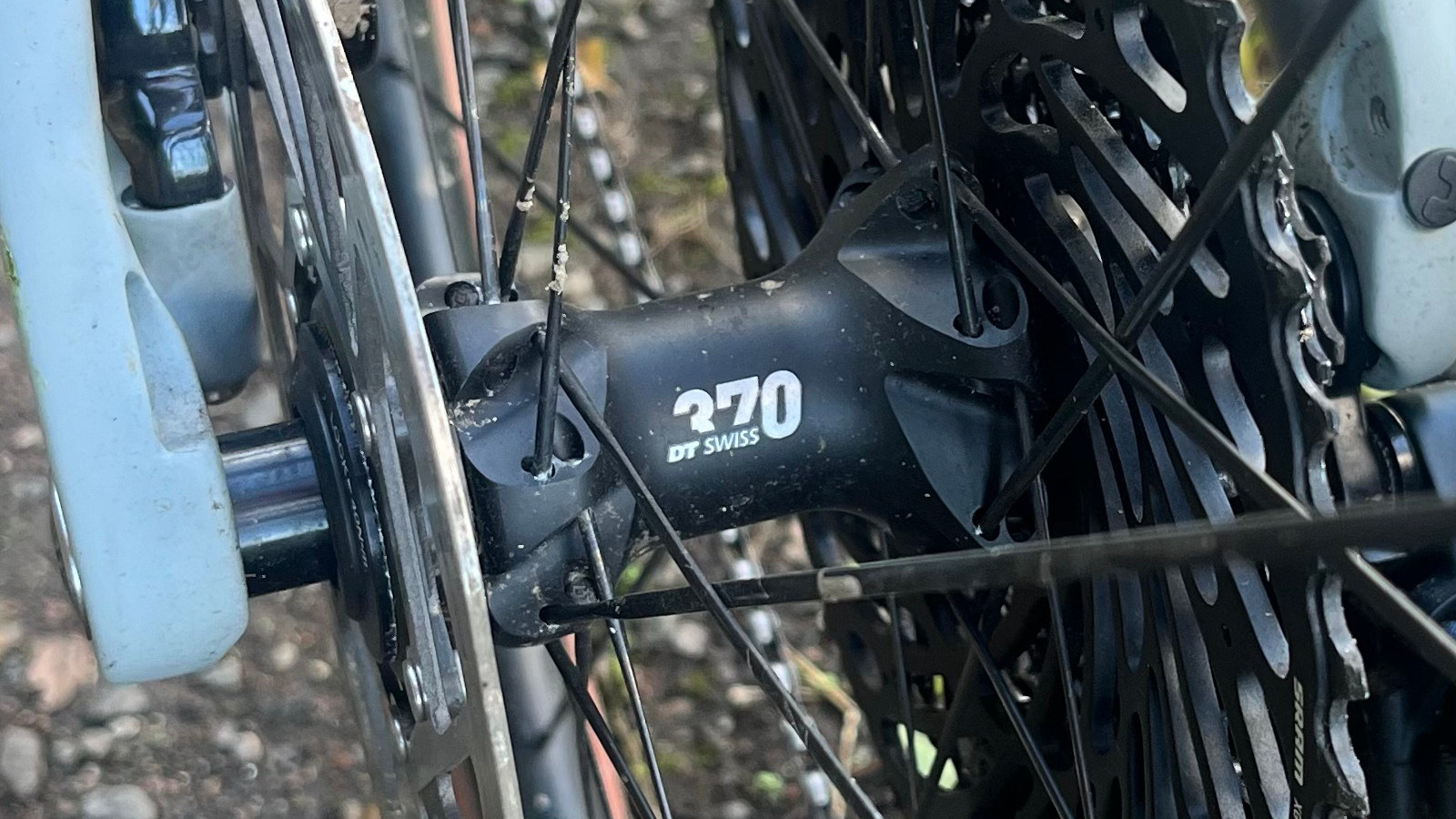
Performance
The setup was straightforward, and the rims come already taped for tubeless. As with other DT wheels I've tested, the tape was set up perfectly and well-finished, which greatly affects how well your tubeless setup seals but is often overlooked. The valves are neat, too, with an oval lock ring that is easy to tighten down and valve caps with an integrated core remover, handy if you need to remove them out on the trail. Both tires I used went up the first time when setting up as tubeless, and neither lost any air from low-pressure burping or sealing issues.
In use, the wheels worked in an eerily unfussy fashion. The extra weight compared to the carbon wheels I had on test was noticeable, and the extra mass definitely dulled some of the acceleration I was used to, but off-road, they are fabulously muted. The wide and reasonably shallow rim combined with the flat-bladed spokes helped smooth out high-frequency trail chatter. The muted ride was noticeably helpful on rocky or rooty sections, where a super stiff wheel might get pinged offline, the G1800s tracked across whatever was put in front of them.
This, of course, means the opposite can be said of accelerations and changes of speed on climbs, where the extra mass and muted feel can be felt. There still more steady and sure-footed than slow, which is in keeping with the dependable high-mileage adventure riding these are aimed at. There are faster options, but that's not what these are about.
My local trails in the Peak District are famously rocky and generally tough on tires and rims, but no such issues here. Despite running very low pressures on one ride due to a sealed puncture I hadn't noticed until the bottom of a particularly long descent, there wasn't any damage to the rims despite a few questionable line choices, which bodes well for G1800’s rims robustness and longevity claims.
The Ratchet LN is a welcome upgrade to the previous three pawl versions, which remained faultless and running smoothly through testing, and from previous experience with DT hubs, I'd expect them to stay that way for a considerable amount of time. Freehub pickup is slow, not such an issue for more relaxed gravel and bikepacking adventures, but if you want something speedy or are looking at a race or CX replacement wheel, then I'd budget for the fitting higher tooth count ratchets or look further up the range for lighter options.
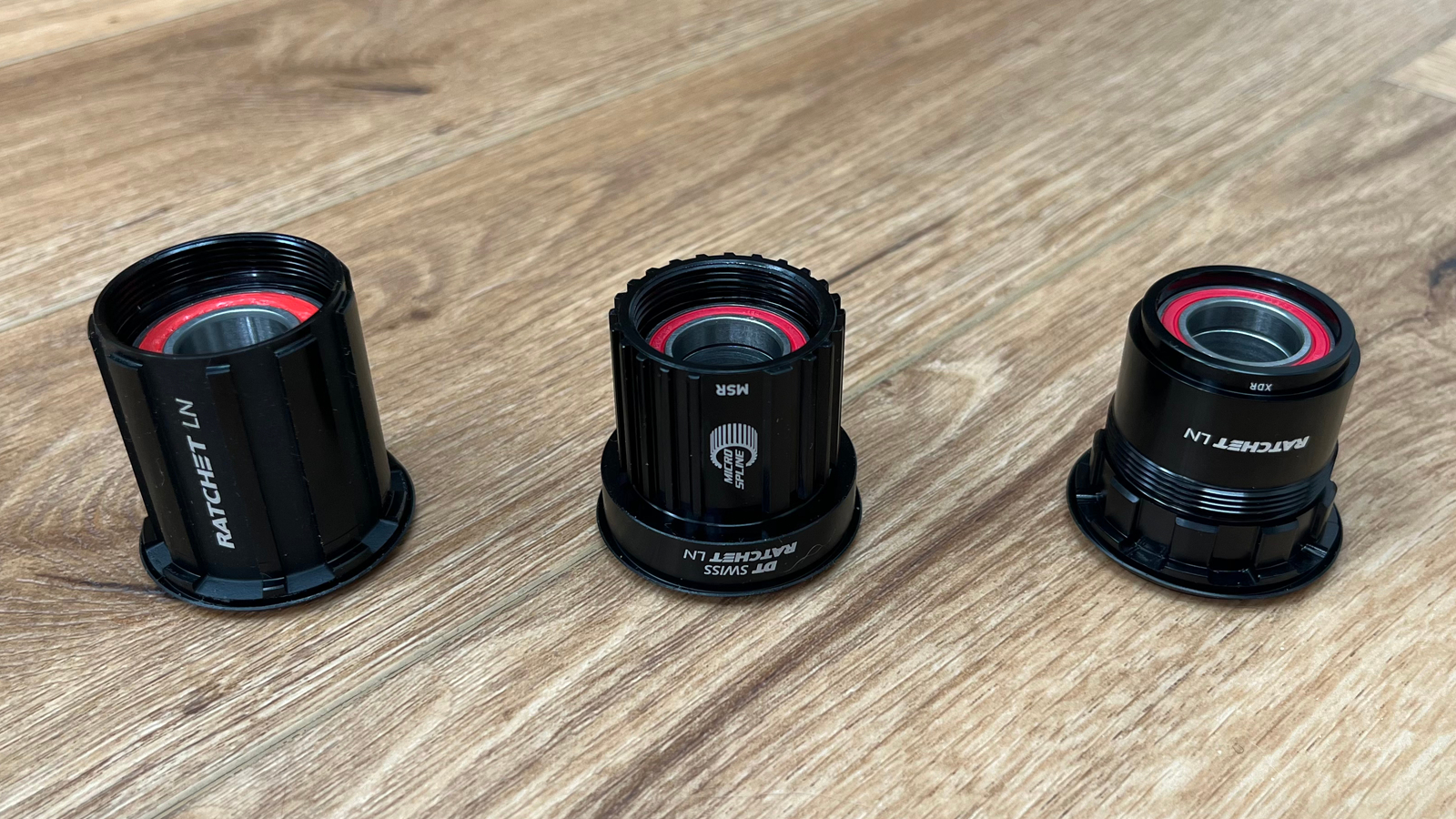
Verdict
It's far too easy to reference clocks and how they work when talking about a Swiss product. Still, in the case of the DT Swiss G1800 25 case, it would be appropriate, as it worked perfectly with minimal fuss on various terrain on multiple bikes and setups, like clockwork, really. A solid, if heavy, dependable wheelset perfect for high mileage riders looking for a comfortable and serviceable wheel.
Hub engagement is on the slow side, but being able to change this yourself is a bonus, and the 18-tooth fitted is adequate, with its long service intervals working well for the intended target audience of riders.
Overall an impressively straightforward, no-nonsense product at a reasonable cost that is entirely user-serviceable with established parts that should last a long time, ideal for high mileage adventurers.
Tech specs: DT Swiss G1800 wheelset
- Price: $542 / £429.99 / €429
- Sizes: 700c / 650b
- Internal width: 24mm
- Options: XD, HG
- Weight: 1,832g (with rim tapes and valve fitted)

Neal has been riding bikes of all persuasions for over 20 years and has had a go at racing most of them to a pretty average level across the board. From town center criteriums to the Megavalanche and pretty much everything in between. Neal has worked in the bicycle industry his entire working life, from starting out as a Saturday lad at the local bike shop to working for global brands in a variety of roles; he has built an in-depth knowledge and love of all things tech. Based in Sheffield, UK, he can be found riding the incredible local trails on a wide variety of bikes whenever he can
